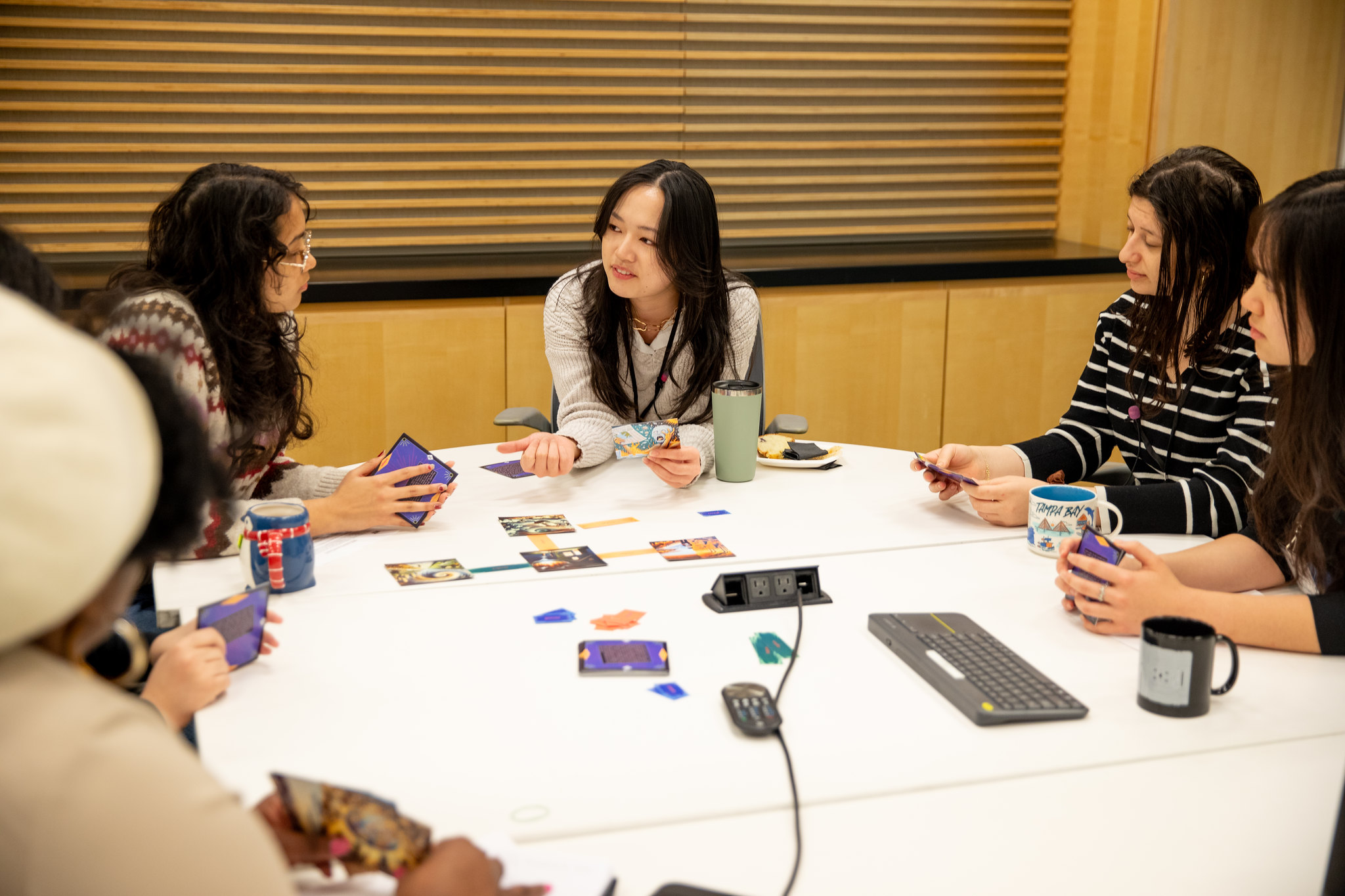MIT CCC is launching a student advisory board to help shape its ongoing research as well as student programming via realtalk@MIT. This group of undergraduates will contribute to the development of student-facing initiatives, provide input on outreach efforts, and help create environments where their peers feel comfortable engaging in deep and honest conversation.
Marina Rakhilin, program manager of translational research at CCC, elaborates: “I’m really excited about sharing our research with the campus community, but I know we’ll need to rely on current students to know what is most relevant to them, and how best to explain it. We want to hear about their concerns and passions to ensure that the issues most important to them are at the center of our program design”
This inaugural student advisory board consists of seven MIT students who represent a diverse range of academic backgrounds, bringing perspectives from engineering, science, mathematics, business, and the humanities. Their varied interests—from climate policy and digital content creation to narrative journalism and community building—reflect a shared commitment to fostering open dialogue and amplifying student voices across campus.
In their own words
For Ellie Montemayor, a physics and computational cognition major in her third year at MIT, community service is a big part of her life. She has served on MIT’s student newspaper, The Tech, as well as various other service organizations on-campus, such as PLEASURE and the Peer Educators Program. In joining realtalk@MIT, Ellie hopes to have more authentic conversations about the problems students face on and off-campus and hopefully to enact lasting change on campus.
Ruben Stephen, a sophomore majoring in mechanical engineering and computer science, from West Palm Beach, FL, has a passion for problem solving, system building, and personal growth. As a first-generation Haitian-American, he understands firsthand the power of authentic conversations in shaping opportunity and fostering community. Through digital content creation, tutoring, and entrepreneurship, he works to bridge the gap between academic rigor and real-world impact — helping others think more broadly and aim higher. Ruben believes that transformative change begins with open dialogue, and he is committed to fostering conversations that challenge perspectives and inspire action.
Anoushka Tamhane, a first-year at MIT, is a Climate Systems Science & Engineering and Mathematical Economics double major. Growing up in Cupertino, CA, she was very involved with state-level climate policy and empowering voices on climate change, from long-running expert climate advocates and scientists to the voices of vulnerable communities. To her, better conversations around campus means giving students the ability to more fully explore their own perspectives and initiate change – both on campus and throughout the world.
In addition to Ellie, Ruben, and Anoushka, we welcome Caleb Mathewos (‘27), Deana Prasad (‘28), Jessie Lin (‘28), and Tasnim Zulfiqar (‘26). Click here to learn more about their interests and motivations for serving volunteering.
What’s next?
This advisory board meets twice monthly to brainstorm on realtalk@MIT programming ideas, provide feedback on existing programs, and share their perspectives on current research directions. Upon initial discussion, these student advisors have expressed a particular interest in improving communication lines between student organizations and MIT administrators. They also shared an interest in preserving student initiatives begun by recent graduates to ensure that the wisdom of these alumni will be passed along to the next generation of MIT students.
Advisors are welcome to serve for 2-3 semesters and then must cede their seats to others to ensure that this remains an opportunity for an evolving group of students who bring a diverse range of ideas for discussion.
Are you an MIT undergraduate who would like to be considered for next year’s student advisory board? Reach out to realtalk@mit.edu and we would be happy to speak further.
